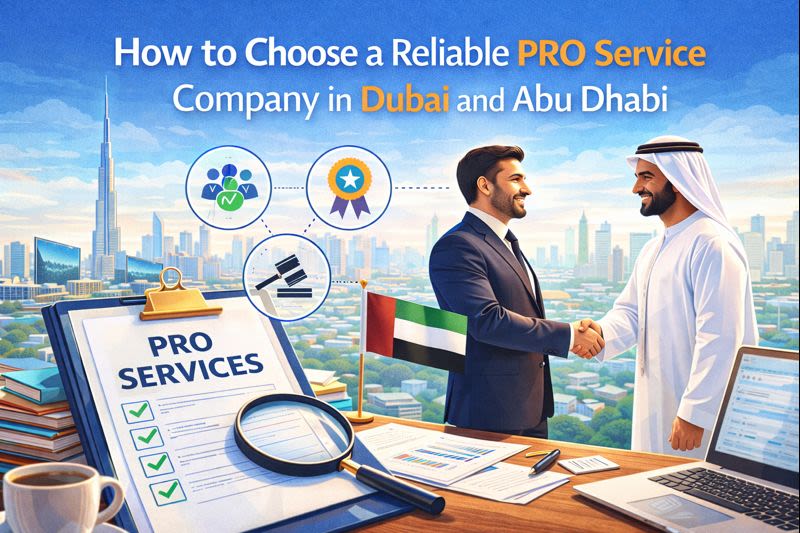
Dubai’s Thriving Manufacturing Industry
Manufacturing is in full swing in Dubai! With its prime location and business friendly policies, the UAE has become a go-to source for manufacturing businesses large and small. Here, businesses can take advantage of modern infrastructure, and a number of incentives that make owning and operating a brand easy.
However, getting started in Dubai’s manufacturing sector requires a deep understanding of the regulations and requirements in the industry. Knowing the rules can save you time, money, and potential legal complications. Below, we’ll explore Dubai’s manufacturing industry and show you how to get your brand off the ground and soaring.
How to Set Up a Manufacturing Business in Dubai
If you’re interested in starting a manufacturing business, the startup process is designed to be easy and straightforward. However, it still might be confusing if you’re new to UAE business. To help, we’ve put together a step-by-step guide on forming your manufacturing business:
- Choose Your Preferred Business Activity - Decide on the type of manufacturing you want to engage in. Dubai offers opportunities across various industries, from food production to electronics and textiles. Choose an industry that fits you.
- Pick a Trade Name - You’ll need a business name! Select a unique trade name that fits your business activity and complies with the UAE's naming guidelines. Submit your trade name request through the Department of Economic Development (DED).
- Obtain External Approvals - Certain business activities will require approvals from industry-specific authorities. This step shows that you’re in good standing and compliant with legal and operational standards.
- Secure Industrial Clearance from the Environmental Department - Environmental regulations are strict in Dubai. You’ll need clearance from the Environmental Department to prove your operations adhere to sustainability and environmental safety laws.
- Obtain License - Once your application is approved, you’ll receive your manufacturing license, allowing you to begin operations.
- Choose a Warehouse Space - Finding the right facility is essential. You’ll want to find a warehouse that fits your business needs and adheres to industry standards and regulations.
The Importance of a Manufacturing License
A manufacturing license is mandatory for any business involved in production in the UAE. It legally authorizes your business operations, shows that you maintain regulatory compliance, and proves that you’re a trusted member of the UAE market.
Manufacturing licenses also provide access to government incentives and industry-specific benefits that can improve your business’s competitive edge.
Documents Required for Obtaining a Manufacturing License
To obtain your manufacturing license, you’ll need to provide the following documents:
- Business Plan - A detailed outline of your company’s objectives, production processes, and financial projections.
- Company Formation Documents - Legal paperwork proving your business registration.
- Power of Attorney - Authorization documents allowing legal representation.
- Lease Agreement - Proof of a valid business location or factory premises.
- Environmental Impact Assessment - A report analyzing your business’s environmental impact.
- Memorandum of Association - A legal document outlining your company’s structure and activities.
- Emirati ID - Required for local partners or business owners.
Key Regulatory Authorities in Manufacturing
Operating a manufacturing business in the UAE will require you to interface with a range of authorities and abide by a number of key regulations. Some of these authorities include:
- Department of Economic Development (DED) - The DED is responsible for business registration, trade name approvals, and licensing for manufacturing businesses operating in Dubai’s Mainland.
- Ministry of Industry and Advanced Technology (MoIAT) - This ministry sets industrial policies, regulates manufacturing activities, and promotes technological advancements in the sector.
- Free Zone Authorities - If you set up your business in a Free Zone, that relevant Free Zone authority will oversee licensing, compliance, and operational regulations specific to that zone.
- Environmental Protection and Development Authority (EPDA)- Ensures that manufacturing companies comply with environmental laws and sustainability initiatives to reduce their ecological footprint.
- Department of Civil Defence - Oversees fire safety and emergency response regulations and ensures that manufacturing facilities meet safety requirements.
- Health, Safety, and Environment Authorities (HSE) - Enforces workplace health and safety laws to protect employees and maintain industry safety standards.
- Emirates Authority for Standardization and Metrology (ESMA) - ESMA regulates product quality, standardization, and certification requirements.
- Local Municipalities - These authorities are responsible for issuing building permits, health approvals, and waste management regulations for manufacturing businesses.
- Ministry of Human Resources and Emiratisation (MOHRE) - The MOHRE governs labor laws, worker rights, and employment regulations to ensure fair labor practices.
- Telecommunications and Digital Government Regulatory Authority (TDRA) - The TDRA regulates the use of communication technologies and data protection laws within the manufacturing sector.
Maintaining Standards and Safety
If you’re running a manufacturing business in Dubai, you’ll be expected to adhere to a number of regulations surrounding safety and quality. Some of these regulations include:
- Environmental Regulations - Manufacturers must comply with sustainability policies, waste management guidelines, and emissions control set by the Environmental Protection and Development Authority.
- Health and Safety Regulations - Businesses must implement workplace safety measures, emergency protocols, and employee health standards mandated by health and safety authorities.
- Quality Control - The ESMA enforces product quality and safety regulations to ensure consumer protection.
- Labor Laws - Companies must follow UAE labor laws, including fair wages, working hours, and employment contracts as stipulated by MOHRE.
- Import/Export Regulations - Businesses involved in international trade must adhere to customs procedures and trade compliance laws.
- Product Standards - Manufacturing firms must meet industry-specific product quality and safety benchmarks established by ESMA.
- Data Protection - Companies handling sensitive customer and business data must comply with the UAE’s data privacy regulations enforced by TDRA.
Essential Documentation for Ongoing Compliance
To operate legally in the UAE, you’ll be required to renew your manufacturing license on an annual bases. You will want to include the following documentation with your application:
- Business Plan
- List of Trade Names
- Memorandum of Association
- Lease Agreement
- Plant Layout and Flow Chart
- List of Equipment and Machinery
- Environmental Impact Assessment
- Health and Safety Compliance Certificates
- Passport Copies and Visa Documentation
- Technical Support Service Approvals
- ESMA Certification
- Financial Audits and Reports
MSZ Consultancy Can Help You Start Your Manufacturing Business in Dubai
With years of experience navigating the ins and outs of UAE business, MSZ Consultancy can get your business where it needs to go. Our team of experts can guide you through every step of the business setup process in Dubai, from obtaining approvals to securing licensing and visas, and make managing your brand easy.
Whether you need help with business setup, legal structuring, PRO services, or financial auditing, we can take your enterprise further.
Call us today at +971 52 544 1248 for more information on the services we can offer your business. We’ll provide you with a custom roadmap for success and help you take your business into the future.
Zubair Sultan Mohammed is a seasoned business consultant specializing in company formation and regulatory compliance in the UAE and Saudi Arabia. With over 15 years of experience, he has guided entrepreneurs, SMEs, and multinational firms through the complexities of regional business laws and market entry strategies. His deep understanding of local licensing, taxation, and free zone structures ensures clients make informed, strategic decisions. Zubair Sultan Mohammed regularly contributes insights on corporate setup, investment trends, and regional economic developments.





